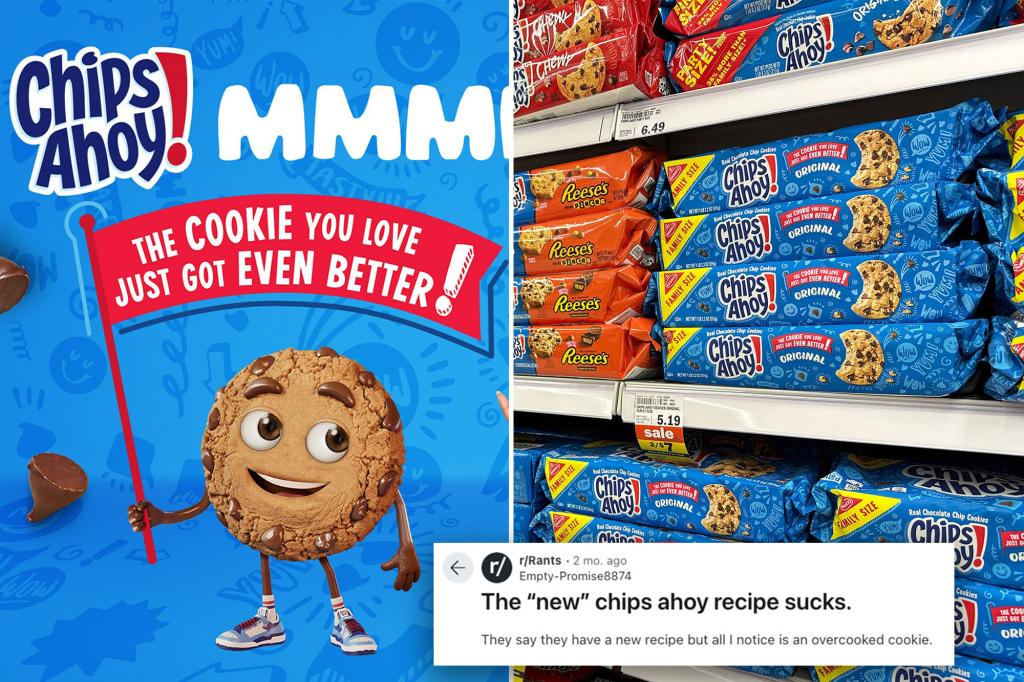Chips Ahoy! fans are upset over a new recipe for the popular chocolate chip cookies introduced by Mondelēz and promoted by actress and singer Keke Palmer back in March. This change marks the first significant tweak to the iconic treat in about a decade, with the new cookies now containing specially blended chocolate chips with increased cacao content, a stronger dose of Madagascar vanilla extract, and a different cookie texture. The allegedly out-of-order overhaul took four years to complete, with the company testing 60 recipes before making their final decision.
The responses to the new recipe have been mixed, with many Americans expressing confusion and disappointment with the changes. Several disgruntled cookie lovers have taken to social media to express their desire for Mondelēz to revert to the original recipe, with some even promising to boycott the brand forever. One critic on Reddit described the new cookies as tasting like a “darker chocolate with a nasty vanilla aftertaste” and vowed to stock up on the original version whenever possible. Another person confessed to throwing away an entire party-sized box of the new cookies after trying them.
Chips Ahoy! cookies were first introduced in the early 1960s by Mondelēz subsidiary Nabisco, the same company behind the popular Oreo cookie. The cookies are sold in various regions across the globe, including Asia, Europe, Latin America, and North America. Research company Euromonitor International has identified Chips Ahoy! as the market leader in its category, with more than a 10 percent share of the global cookie market. Despite the backlash from some fans over the new recipe, Mondelēz has yet to respond to the calls for a return to the original version.
The discontent over the new Chips Ahoy! recipe reflects the strong emotional attachment that consumers have to certain food products and the impact that changes can have on their enjoyment. The backlash on social media highlights the power that consumers have in expressing their opinions and influencing the decisions of food companies. It also demonstrates the risks that companies take when altering beloved products in an attempt to appeal to changing consumer tastes.
The situation with Chips Ahoy! underscores the delicate balance that companies must strike between staying true to their traditional products and adapting to evolving consumer preferences. The introduction of the new recipe has sparked a debate among fans about whether modernizing a classic product is a necessary evolution or a misstep that detracts from the original appeal. It remains to be seen how Mondelēz will respond to the outcry from disgruntled fans and whether they will consider making changes to address the concerns raised by consumers.
In conclusion, the uproar over the new Chips Ahoy! recipe showcases the deep connection that consumers have with certain food products and the passionate responses that changes to these products can elicit. The debate over the new recipe reflects larger discussions in the food industry about the balance between tradition and innovation and the challenges of meeting the demands of a diverse consumer base. Whether Mondelēz will listen to the feedback from fans and reconsider their decision remains to be seen, but the incident serves as a reminder of the power that consumers have in shaping the products that they love.















